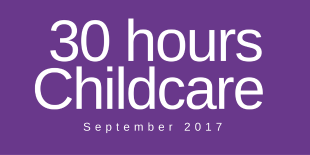30 Hour Free Childcare has been available from September 2017 to parents who receive any of the following benefits:
- Tax credits
- Universal Credit
- Childcare vouchers or salary sacrifice schemes
- Childcare grants and bursaries
The 30 hours childcare offer gives eligible parents an additional 570 hours of free childcare per year. However, a survey conducted by the Pre-School Alliance in January 2018 has found that early years childcare providers are feeling the pressure financially, and 30 hours hour free childcare may not be as free as promised.
The survey of 1,662 nurseries, pre-schools and childminders found that only one third of respondents were providing the 30 hours offer ‘completely free’ to parents without additional charges to parents. The survey also found that 28% of applicable providers were not offering any places completely free to parents; 37% of respondents have introduced additional or increased charges for additional goods and services such as meals; and 66% of respondents are planning to change their financial model to deliver the 30 hours offer in the next 12 months. It is thought this will most commonly be done via the increasing/introduction of additional charges.
Over a fifth of respondents, 21%, cited government underfunding as the cause of their business instability. The government has frozen childcare funding until 2020 with the commitment to an injection of £6 billion of funding during this period. Neil Leitch, Chief Executive of the Alliance, highlighted that since the policy was announced the sector has increasingly cited the untenable nature of the scheme: “This has left parents to pay the price for government underfunding through often unexpected charges for things like nappies, food and trips, while the government continues to claim that it’s delivering on its promise of ‘free’ childcare.”
Evidence from within the sector suggests the unsustainability of delivering the scheme at current funding levels. The question is how long will parents have to effectively subsidise one of the government’s flagship policy?
